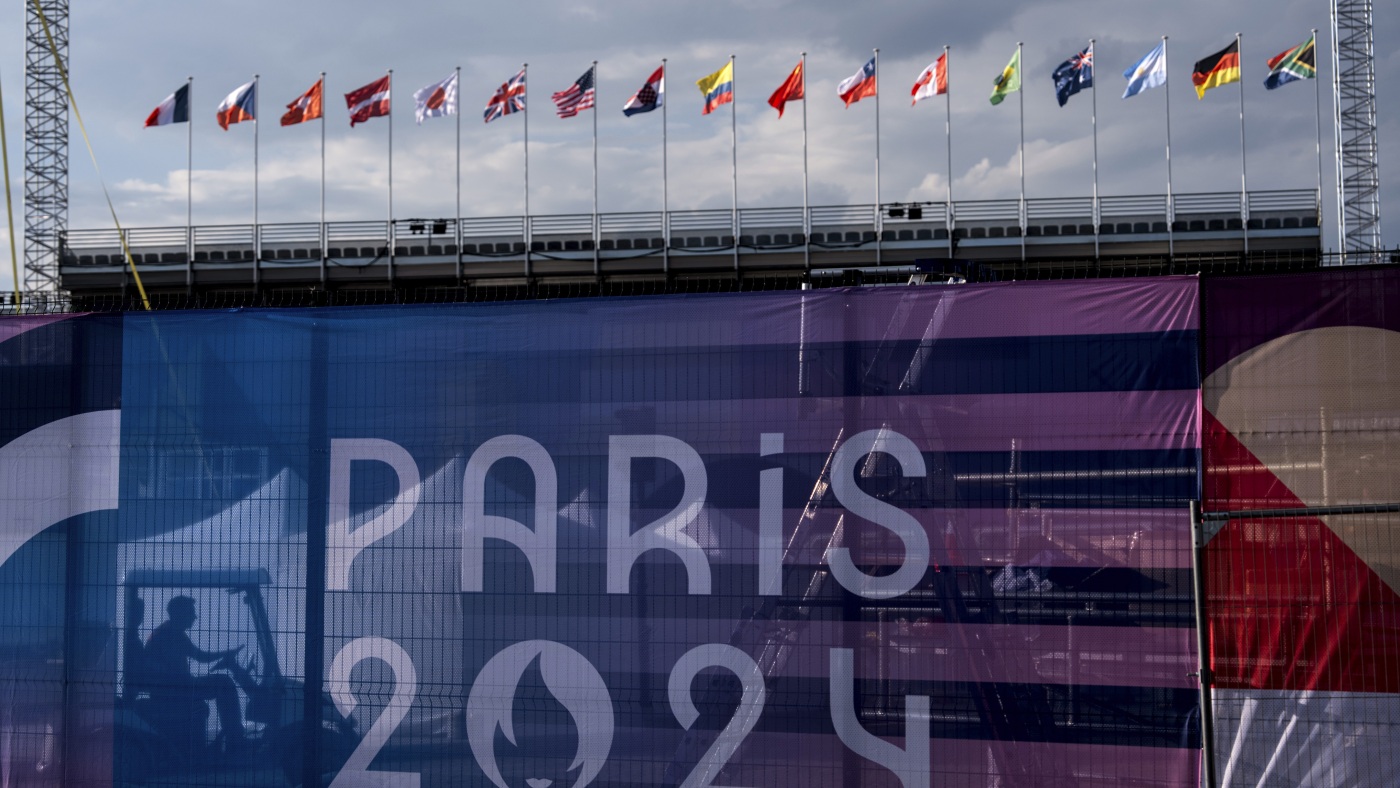A worker drives a golf cart inside the competition venue for BMX freestyle ahead of the 2024 Summer Olympics, Friday, July 19, 2024, in Paris. (AP Photo/David Goldman)
David Goldman/AP/AP
hide caption
toggle caption
David Goldman/AP/AP
When the 2024 Olympics start this week, France won’t allow its athletes to wear headscarves during the games – seemingly in contrast with the Olympic charter’s calls for respect of religion and protection of human rights.
A recent report from Amnesty International calls France’s restrictions on religious attire blatant discrimination and a researcher for the human rights nonprofit told NPR’s Morning Edition that, beyond being unfair, the move could cause systemic issues for women athletes in France.
The bans have a wider impact on women in sports, dashing the hopes of female athletes in France, said Anna Błuś, a researcher for Amnesty International. Amateur soccer, basketball and volleyball leagues also don’t permit women to wear hijabs during play.
”They get to a point of constantly being asked to remove their clothing, to give up a part of their identity if they want to progress,” Błuś said. ”And a lot of the women that I spoke to said that they didn’t see a future for themselves in France and that they were planning to leave the country and to compete for other national teams.”
The technical reason behind France’s ban
The International Olympic Committee said in a statement to NPR that the host country considers athletes representing it as civil servants.
“This means that they must respect the principles of secularism and neutrality, which, according to French law, means prohibition from wearing outwardly religious symbols, including the hijab, veil and headscarf when they are acting in their official capacity and on official occasions as members of the French national team,” the statement read. “The same secular approach also applies, for instance, to civil servants and teachers.”
France’s sports minister Amélie Oudéa-Castéra has reinforced the idea that the country’s national team is considered part of the civil service — so is subject to the same restrictions that apply to anyone in public service in France.
Błuś said those secularist policies are being unfairly applied to French athletes.
“We do not agree that athletes on the French national team should be seen as public servants,” she told Morning Edition. “They should not be required to carry out a role that goes beyond what they’re meant to do, which is to participate in sports, to compete for their country. And they should also not be expected to follow their government’s political choices or policies that actually discriminate and violate human rights.”
Basketball player Hélène Bâ is among French athletes who have been excluded from professional sports competitions since October 2023.
She’s one of the founders of the Baskets Pour Toutes collective (Basketball For All) in France. Her story is documented in the Amnesty International report where she said that “everyone sees you going from the bench to the ladders and for them it’s just the case of ‘You Cannot Play’ but for you it’s a walk of shame.”
This digital story was edited by Obed Manuel.

